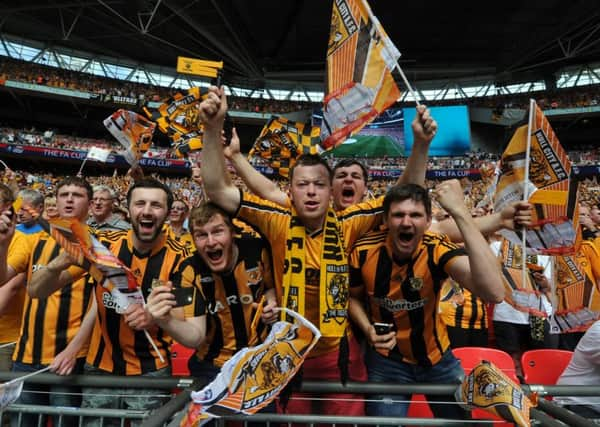Fans versus football - an unconditional relationship reaches breaking point


Ten thousand Liverpool fans walked out in the 77th minute of their game against Sunderland in protest at the decision to start charging £77 for some match day tickets in Anfield’s new Main Stand next season.
All it took was one moment on Saturday and the collective decision to abandon Anfield.
Advertisement
Hide AdAdvertisement
Hide AdThat has spooked the club’s hierarchy and the wider footballing world. There was always an assumption that fans would never abandon their team. It turns out that there is a breaking point.
By Monday, Liverpool’s board had gathered to discuss the ticket prices for next season, cancelling a planned Q&A session with fans.
The signs were always there that even the hint of protest was worrying - chief executive Ian Ayre spoke to the press on Friday asking fans not to walk.
The Anfield side’s decision over ticket prices has received special attention because of the impending Premier League television rights deal.
Advertisement
Hide AdAdvertisement
Hide AdNo club in the top flight will receive less than £100 million-per-year over the next three seasons from the sale of broadcast rights, assuming the current projections for overseas revenue are confirmed to be true.
There had been calls for price drops in response to the deal - making increases even more of a shock.
It follows the trend of football since 1992, when clubs in the top flight have charged more and more for seats in their all-seater stadiums, despite ever increasing money coming in from television deals.
The ticket prices have always been justified by the need to compete on the pitch. The numbers show this to be a lie - Liverpool’s price increase will, at a maximum, only bring the club another £2m annually, only two per cent of the television money. There will be very few clubs in the top flight that find themselves missing out on a player because of a £2 m price difference between asking price and the fee they are willing to pay.
Advertisement
Hide AdAdvertisement
Hide AdFans have decided that they cannot take that spin any longer.
There has been some criticism of Liverpool fans, not least because they were already in the stadium, paying for their tickets. There is no question that some of those who walked would be able to continue attending next year, despite the increases. After all, former Liverpool defender Jamie Carragher was among the 10,000.
It is not the simple increase in price but what it might mean for the future that has inspired fans to walk. Will sons and daughters be able to keep attending Anfield as their fathers, mothers, grandfathers and grandmothers did? Not if prices keep going up.
Walking was justifiable and showed clubs that supporters will not take it forever.
Advertisement
Hide AdAdvertisement
Hide AdThree teams from Yorkshire have the potential to reach the Premier League next season, and they will do well to learn a lesson from the reaction.
Both Middlesbrough and Hull City look likely candidates for automatic promotion, while there is a sense that something special is brewing at Sheffield Wednesday.
Wednesday announced last summer that they would have a potential £52 match day ticket, although that price point has not been used at any point this season. Middlesbrough’s top ticket costs £34, while Hull’s is £36.
If any of them do gain entry to the Premier League party, they would do well to take the savings and pass it on to the fans, or at least not ask for more from them.
There is no point, and it is clear now that the loyalty elastic band can only be stretched so far before it snaps.